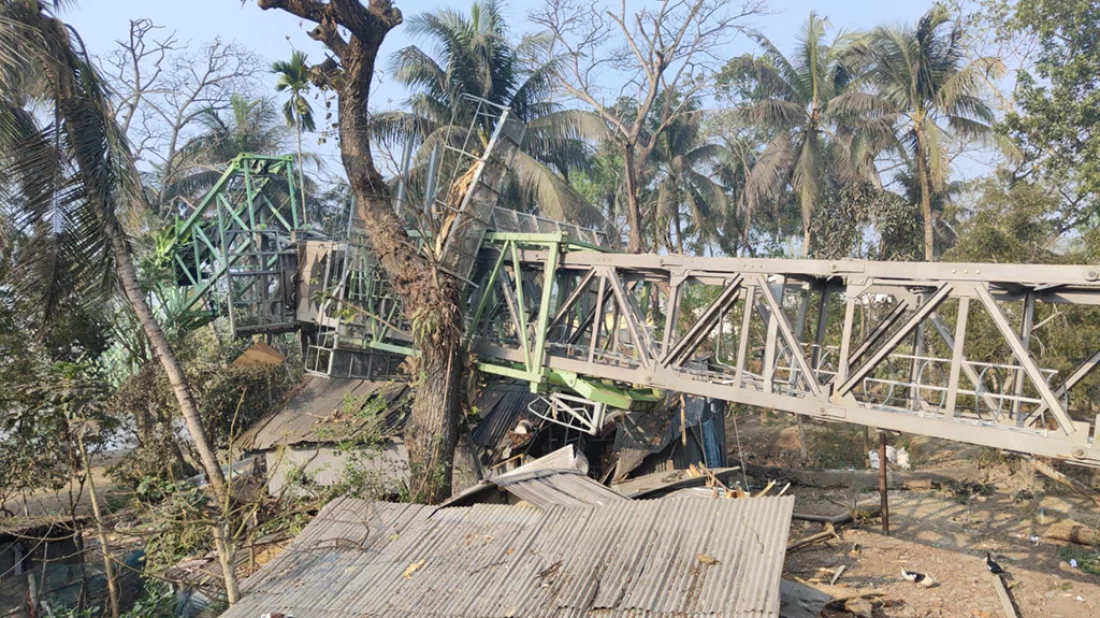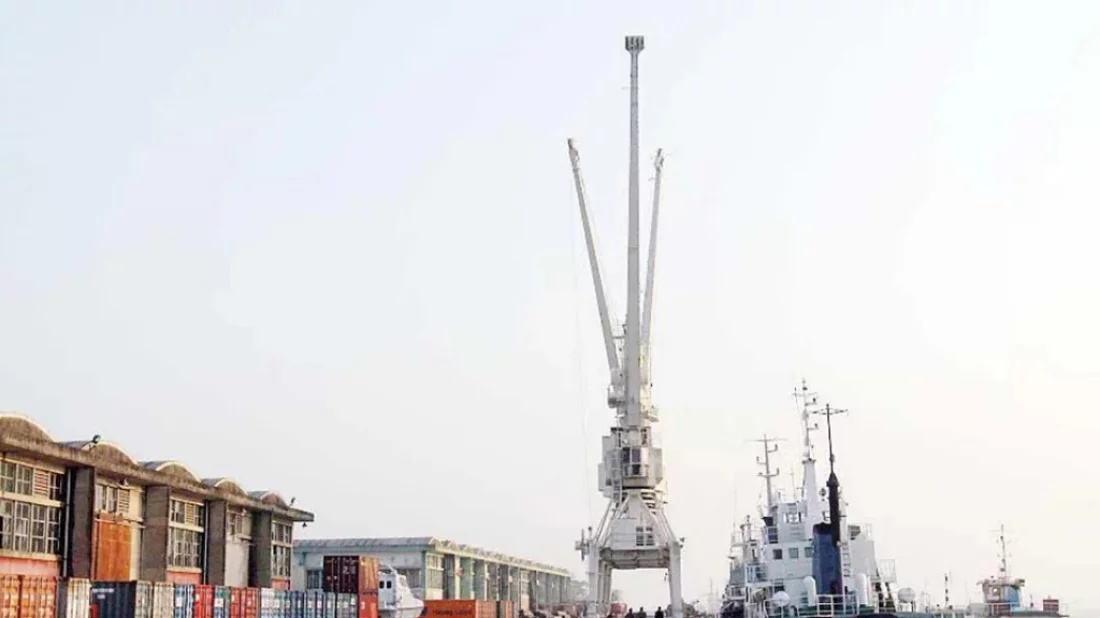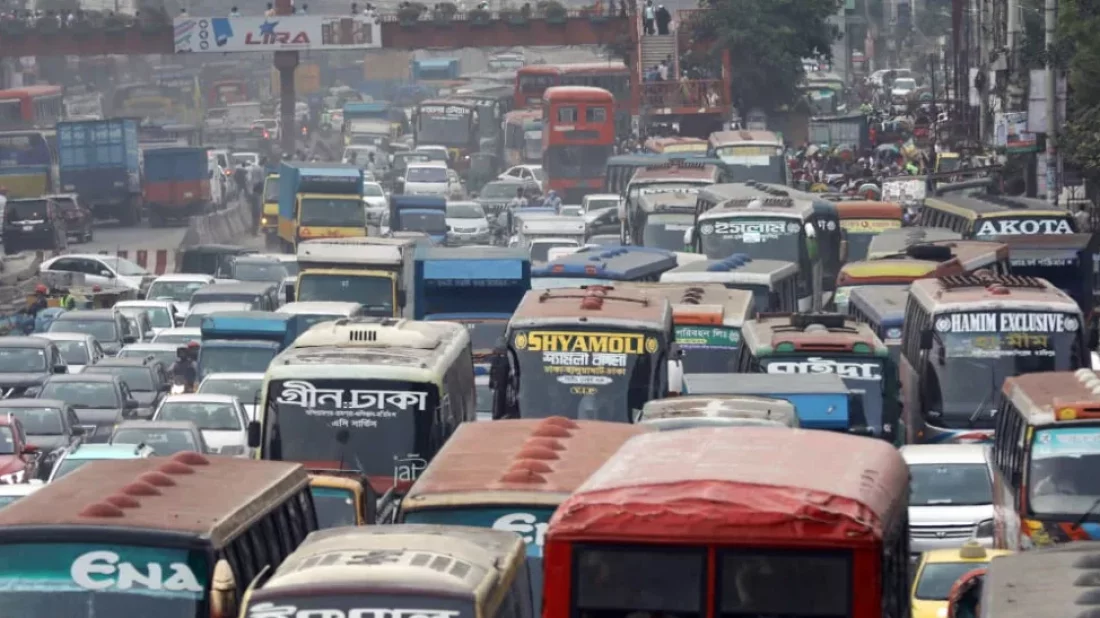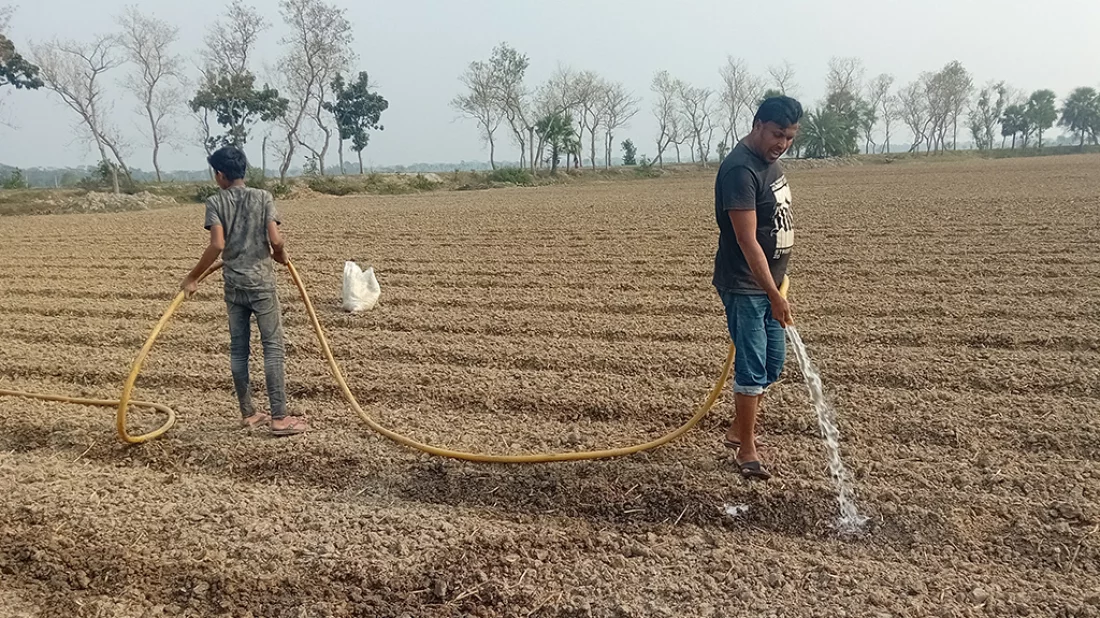
The local authorities have closed 53 sluice gates for 80 days to prevent saline water from entering the canals and water bodies in Dakop Upazila of Khulna, where farmers depend heavily on watermelon cultivation.
The farmers are cultivating the fruit variety in advance, and this technique has worked well for them in the salinity-hit area for the last five years. However, this time their worry is not salinity; rather, it is the price of fertilizers.
This year, in view of the upcoming Ramadan and Eid-ul-Fitr, the farmers have begun the cultivation 15 to 20 days in advance of the season. This is because they had a terrible business in 2022 when they could not sell their watermelon during Ramadan despite paying heavy prices for fertilizers. The next year, they planted watermelon 20 days early and got the desired success. The farmers in Dakop are following the same procedure this year.
Farmers have prepared land for watermelon cultivation and sowed seeds in Kailashganj, Laudob areas of Dakop, and Katiyanangla of Batighata Upazila. Some are using modern methods of seedling production. When the seedlings are one and a half to two inches tall, they are planted in the ground.
Nagen Das and Md Rabbi of Dakop said the seedlings are planted when the river still has sweet water. If the soil gets sweet water at the beginning of the cultivation, the yield will be good, they said.
Sudeep Mallik of the same area said: “The price of fertilizer and the wages of workers have increased this year. So there is concern. Still, I am cultivating watermelons in advance. Water has been blocked in the canals to prevent saline water from entering the fields. As a result, finding sweet water will not be a problem for two months.”
He said that last year, the workers were paid Tk60 per hour. This year, Tk70 has to be paid. Again, the price of each bag of fertilizer is Tk300-400 more than it was last year. On the invoice, however, the dealers write the government-set price. The extra money has to be paid while giving cash.
"Therefore, we cannot provide proof. And if you talk about it, the dealer will threaten you with not giving you the required fertilizer,” he alleged.
Purnima Mondal, a day labourer in Dakop, said: "We are taking Tk70 per hour by this year. All men and women are getting equal pay. Last year, it was Tk60 per hour. You have to work in the sun and sweat. Prices of daily commodities have increased. So we are increasing the wages by Tk10 per hour.”
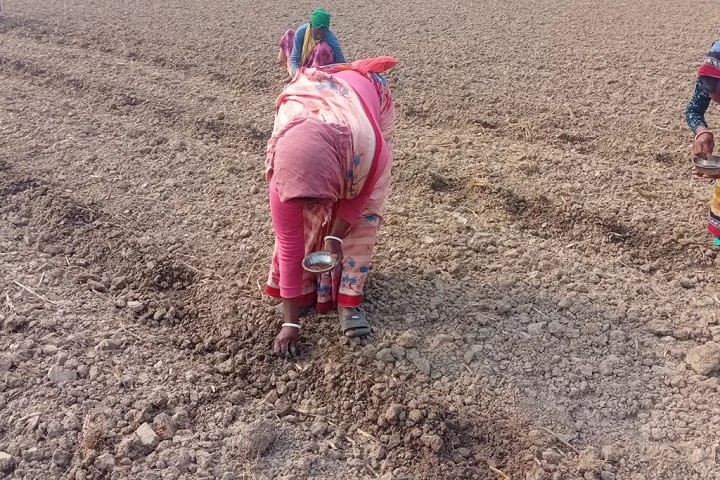 The image shows female workers working at watermelon land in Khulna. Photo: Dhaka Tribune
The image shows female workers working at watermelon land in Khulna. Photo: Dhaka Tribune
Noor Islam Sheikh, a farmer from Batiaghata, said: “In 2022, watermelon cultivation on 11 bigha land caused me huge losses due to various reasons. In 2023, I cultivated watermelon in advance and had success. Therefore, this year too, we are cultivating watermelon in advance.”
He expects to sell watermelons worth Tk12 to Tk14 lakh from his field.
Another farmer, Md Mosharraf Hossain, said: "This time, I cultivated watermelons in advance on 10 bighas of land. Last year, a large amount of produce was lost in the field as the month of Ramadan was nearing its end. Therefore, this year I am cultivating watermelon in advance.”
Upazila Agriculture Officer Shafiqul Islam said: “There is no chance to increase the price of fertilizer. Dakop has 90 dealers. Everyone has price lists pasted on their stores. If we learn about the overcharge, we can certainly take action against that dealer. Farmers should be proactive in paying prices as per the price list.”
This official said that they have been blocking the sluice gates for watermelon cultivation for the last five years to stop the saline water from the river from going into the canal. As a result, the farmers have benefited.
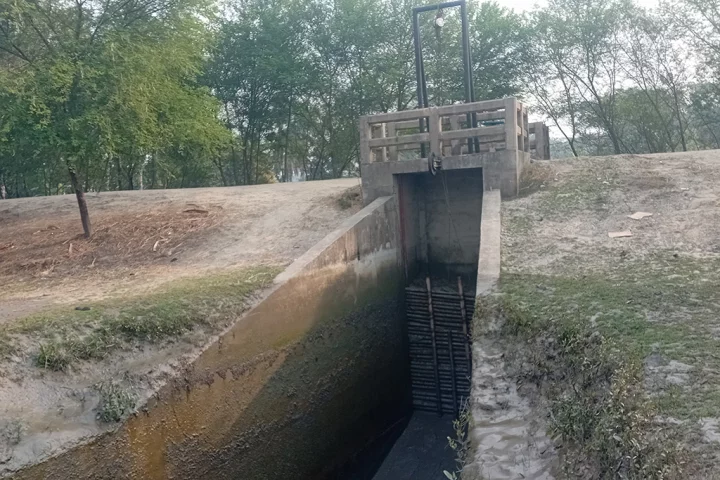 A sluice gate is kept closed to prevent saline water from entering the canals and water bodies in Dakop Upazila of Khulna. Photo: Dhaka Tribune
A sluice gate is kept closed to prevent saline water from entering the canals and water bodies in Dakop Upazila of Khulna. Photo: Dhaka Tribune
Of the 53 sluice gates, 15 are defective, he added.
He said that this year, farmers in Dakop are cultivating watermelon on 7,000 hectares of land, compared to 6,500 last year.
Ashraful Islam, executive engineer of the Water Development Board Khulna-1 zone, said: “Steps were taken to prevent the entry of saline water by closing the sluice gates in Dakop and Batiaghata upazilas. It was the farmers who took action. The Water Development Board and other related government departments provide necessary cooperation.”
An official of the Khulna Department of Agricultural Extension said that there is a target for watermelon cultivation in Khulna on 12,225 hectares of land this year. So far, 2,680 hectares of land have been cultivated in advance. These include 2,210 hectares in Koyra and 400 hectares in Paikgasa.
In 2022, farmers cultivated watermelon on 13,290 hectares of land in Khulna, and some suffered huge losses. Therefore, in the next year, watermelon cultivation was done on 12,225 hectares of land. Among these, 6,320 hectares were in Dakop, 3,100 hectares in Batiaghata, 1,247 hectares in Paikgasa, 1,200 hectares in Koyra, 350 hectares in Dumuria, 3 hectares in Terkhada, 3 hectares in Rupsa, and 1 hectare in Daulatpur.





